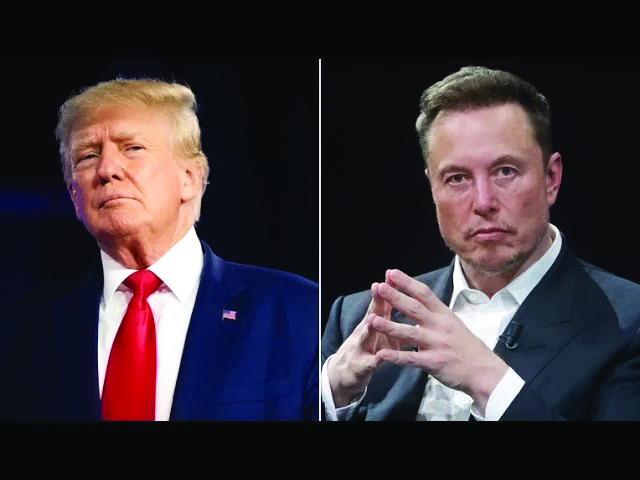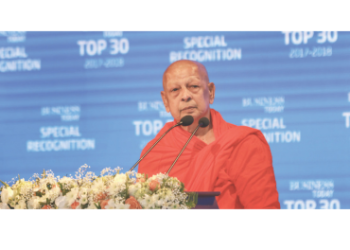The setting was Mar-a-Lago, Florida—a luxurious estate glowing under the soft light of a warm evening. Inside, the grand ballroom hummed with the chatter of America’s elite, gathered for an exclusive event “X”, Aug 13, 2024. Among them were two men whose names were synonymous with power and influence: Elon Musk, the tech visionary behind Tesla and SpaceX, and Donald Trump, the 45th President of the United States and a business magnate.
As they navigated the crowd, their paths converged near a grand piano, where a jazz trio played. Trump extended his hand with a confident smile. “Elon,” Trump greeted, his voice booming above the music. “Good to see you! I’ve been following your work— Mars, Tesla, quite impressive!”
Musk, known for his reserved demeanor, shook Trump’s hand. “Good to see you too, Mr. President,” he replied with a slight Their exchange began with the expected pleasantries. Musk inquired about Trump’s latest ventures, while Trump praised Musk’s recent achievements, particularly SpaceX’s success with manned missions.
“I wasn’t sure about Mars at first,” Trump admitted, “but seeing what you’ve accomplished—getting people excited about space again—is something.”
Musk nodded. “Space exploration is crucial for humanity’s future. It’s the next frontier.” Trump chuckled. “Frontiers. We both know a thing or two about those.” Their shared understanding set the stage for a deeper conversation.
Carter Hamilton.

Donald Trump, Former President of the United States of America and Elon Musk, Founder of Tesla and SpaceX.
Discussion on Innovation and Space
The talk naturally shifted to space, a subject where Musk excelled, and Trump had shown a surprising interest during his presidency.
“Tell me about SpaceX,” Trump urged. “What’s next after Mars?” Musk’s eyes brightened. “Mars is the ultimate goal, but there’s more. The Starship program is critical for Mars, enabling faster, more cost-effective travel to the Moon and even around Earth. Reusability is key. Lowering the cost of space travel opens up a whole new economy.” Trump nodded thoughtfully. “Space Force was one of my proudest achievements. I’ve always believed in American dominance in space—don’t you think it’s vital for us to lead the way?”
“Absolutely,” Musk agreed. “Space Force is a step in the right direction. We need collaboration between the private and government sectors in space exploration and defense. It’s not just about reaching new planets—it’s also about securing our position here on Earth.” The two men found common ground in their shared belief in American leadership in space innovation.
Economy and Business
Their conversation then turned to the economy.
“Elon, you’ve built some of the most innovative companies in the world,” Trump began. “But the economy’s facing challenges. What do we need to do to keep America on top?” “Innovation is key,” Musk replied. “We need to invest in new technologies—AI, renewable energy, advanced manufacturing. The world is changing rapidly, and if we don’t keep up, we’ll fall behind.”
Trump nodded, “But what about trade? What about manufacturing? We need to bring jobs back to America. That was one of my main goals during my presidency.”
“Reshoring manufacturing is important,” Musk agreed. “But it’s also about how we manufacture. Automation and robotics are the future. We can bring back jobs, but they won’t be the same ones we lost. We need to prepare the workforce for what’s coming.”
Trump saw the opportunity. “You’re right. We need to retrain our workers and make sure they’re ready for the new economy. However, we also need to protect American interests. I’ve always believed in putting America first.”
“America first, but not America alone,” Musk countered. “We need to lead by example and set the standard for the world. That’s how we’ll stay ahead—by being the best.” Their exchange highlighted the balance between innovation and protectionism, embracing the future and safeguarding the present.
Politics and Public Opinion
As the night progressed, they inevitably touched on politics.
“Elon, you’ve been vocal about certain policies, especially around regulation,” Trump began. “What’s your take on how things are going now?”
“Regulation is a double-edged sword,” Musk replied. “On one hand, you need rules to keep things fair and safe. On the other hand, too much regulation stifles innovation. We’re at a point where the pace of technological change is outstripping the government’s ability to keep up.”
Trump grinned. “Exactly. That’s why we cut so many regulations during my time in office. The government can’t be the one holding back progress.”
“There’s a balance,” Musk acknowledged. “Certain industries need oversight, especially regarding safety and environmental impact. It’s about smart regulation, not just less regulation.”
Trump saw the point. “I can see that. But you have to admit, some of the regulations out there are just crazy—killing jobs, killing businesses. We need leaders who understand the real-world impact.”
Musk nodded. “Leaders need to be informed to understand how their decisions affect the economy and the future. That’s one reason I’ve been vocal about certain policies—they’re not just about the next quarter but about the next decade.”
Trump looked thoughtful. “It’s all about the long game, isn’t it? You’ve done that with Tesla and SpaceX—thinking ahead and taking risks. That’s something Washington doesn’t do enough.”
Their discussion underscored the tension between short- term political gains and long-term vision.
“Innovation is key,” Musk replied. “We need to invest in new technologies—AI, renewable energy, advanced manufacturing. The world is changing rapidly, and if we don’t keep up, we’ll fall behind.”
The Future of Energy
The conversation then turned to sustainable energy, a topic close to Musk’s heart.
“Tesla has revolutionized the auto industry,” Trump said. “But what’s the future of energy? Oil and gas are still vital, but where are things going?”
“Sustainable energy is the future,” Musk replied. “Electric vehicles, solar power, battery storage—these technologies will drive the next industrial revolution. We’re running out of time to address climate change, and we must act now.”
Trump, a known advocate for traditional energy, raised an eyebrow. “I get that, but what about the oil, gas, coal jobs? These industries have powered America for a long time.”
Musk acknowledged the challenge. “Transitioning to renewable energy won’t be easy, and it won’t happen overnight. But we can create new jobs in clean energy—good- paying jobs. It’s about retooling our industries, investing in the future.”
Trump seemed to consider this. “I’ve always said we need energy independence. During my presidency, we became a net energy exporter for the first time in decades. That was huge for our economy. But I can see the potential in what you’re doing, too.”
“Energy independence is key,” Musk agreed. “But true independence means not relying on finite resources. Solar, wind, batteries—these are limitless. And if we lead the way, we can dominate the global market for these technologies.”
Trump saw the opportunity. “So, you’re saying we can be leaders in this new energy economy? Create jobs, boost the economy, all while going green?”
“Exactly,” Musk replied. “It’s a win-win. But we need the right policies to make it happen.”
The two men, despite their differing approaches, found common ground in the idea of American leadership in the global energy market.
Social Media and Communication
The conversation then veered towards social media.
“Elon, you’ve done much with Twitter since you took over,” Trump began. “Social media is powerful, but it’s a double- edged sword. What do you think?”
Musk, who had been praised and criticized for his changes to the platform, considered the question. “Social media is a tool—it can be used for good or bad. The challenge is maintaining a balance between free speech and moderation. We want to allow open dialogue, but we also need to prevent abuse.”
Trump nodded, clearly familiar with the challenges of social media. “I know all about that. Twitter was my main platform, which was great—until it wasn’t. There’s much power there, and not everyone uses it wisely.”
Musk agreed. “That’s true. However, social media has the potential to connect people and democratize information. It’s about finding the right balance—giving people a voice and ensuring that voice doesn’t drown out others.”
Trump, ever the populist, saw the potential. “People need to be heard, but they also need to be responsible. That’s tricky—how do you regulate something like that without stifling freedom?”
Musk nodded. “It’s a challenge, for sure. But it’s one we have to face. Social media is here to stay, and it will shape the future in ways we can’t even imagine yet.” Their conversation highlighted the complexities of the digital age, where communication and power intersect in ways that are still being understood.
Personal Reflections
“Elon, you’ve done things that most people can’t even dream of,” Trump began. “What drives you? What keeps you going?”
“I’ve always been driven by a desire to solve problems, to push humanity forward,” Musk replied. “Whether it’s getting to Mars, creating sustainable energy, or improving transportation, it’s about making a difference. I want to leave the world better than I found it.”
Trump nodded, understanding that sentiment. “I’ve always been about winning—whether in business, politics, or life. But at the end of the day, it’s about legacy. What do we leave behind?”
Musk smiled, appreciating the shared understanding. “Legacy is important. But it’s also about the journey—taking risks and making bold moves. That’s how we change the world.”
Trump, ever the showman, grinned. “You’ve done that, Elon. You’ve changed the world. And I like to think I’ve done my part too.”
Their exchange revealed a mutual respect forged through their shared experiences of challenging the status quo and defying the odds.
Closing the Conversation
“This has been great, Elon,” Trump said, extending his hand. “We don’t always agree, but I respect your actions. You’re pushing the boundaries, and that’s what America is all about.”
Musk shook Trump’s hand, a genuine smile on his face. “I appreciate that, Mr. President. It’s been an interesting conversation—lots to think about.”
Trump, always looking for the next opportunity, added, “Maybe we should do this again sometime. Who knows what we could come up with?”
Musk, ever the visionary, nodded. “Who knows, indeed.”
Conclusion
As they parted ways, each man was left to reflect on the evening’s conversation. It was a meeting of minds that, on the surface, seemed worlds apart—one a businessman- turned-politician, the other a visionary entrepreneur. Yet beneath the differences was a shared understanding of what it meant to be a leader, risk-taker, and shaper of the future.
The night at Mar-a-Lago was just one moment, but it captured the essence of two of the most influential figures of the 21st century—a conversation where ideas flew as high as rockets and ambitions reached as far as the stars.





